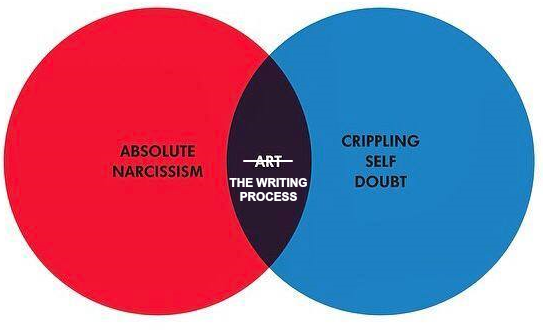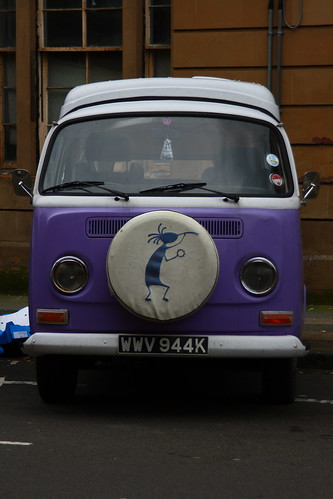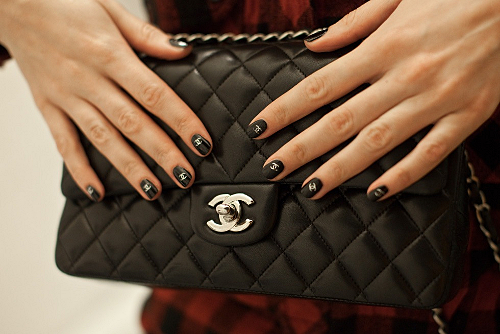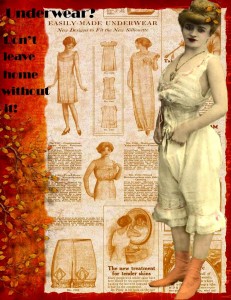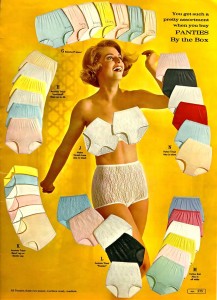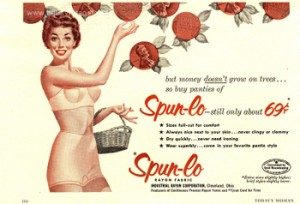Hat tip, Jess Baker’s blog.
Category: Random Notes and Errata
{okay, break is over, time for the other pantoum}
Working in young adult literature can be a little weird, because we’re marketing an idea of youth to the youthful, and everyone has their perception of youth culture and what’s cool, and sometimes it can feel like Fourth Grade: The Later Years, and can be a real bummer. Recently, the experience of having a copy editor tell me that a word usage or whatever “isn’t what people actually say,” (actual phrase: “Nobody says that”) despite a.) me being “somebody,” b.) me having heard that exact word and stuff like that daily growing up and even now, I realized anew that the world is full of different perceptions, and only hubris – and privilege – allow us to be so blind to the experience of another to the extent that we blindly insist that ours is the only valid reality. If we’re smart, we greet these realizations (“diminishments,” microaggressions) with a philosophical mien. Stuff happens. People are weird. It’s the scrapes, slings and arrows of life. Still, exchanges like this can make you just feel weary and stupid and useless and — out of it.
I was thinking about that experience when I read Poetry Sister Kelly’s philosophical pantoum about, among other things, aging, and read the lines, Do not go gently into that good night– / Is that the best advice we can hope for? and found myself irately asking the same question, from a different perspective. Don’t engage the trolls? Is this the best advice we can hope for? Let them put you into whatever little box that suits them, and play nicely? Do I have to play this grade school game of “Who is cooler?” on their field, by their rules? Do I have to let this person work their way under my skin, and make me feel less than?
Short answer, HECK NO.
Kelly’s poem goes on, We have to lose ourselves. In time / we’ll find something better, a place we can / take back words, or let them go…. All good options, yeah? Time and losing ourselves, and finding our self again. But, the one thing that this poem emphasized for me is CHOICE. We still get to choose our attitude, our take on things, our path. No matter what.
I choose not to feel out of it, stupid, and unhip. I choose to be, like the cars of the late seventies, vintage and classic.
classic*
Ignition – all my plugs throw out a spark,
My engine purrs and builds into a roar.
The pipes and pumps are working fine tonight –
Road sings to rubber on the ribbon-track.My engine purrs and builds into a roar —
We call old “vintage” in a ride this fine —
Road sings to rubber on the ribbon-track
Croons out, “Pull over if you can’t keep up.”We call old “vintage.” In a ride this fine,
Who cares if we must add a little oil?
Cry out, “Pull over. If you can’t keep up
Get belted in, love. Gun it and hold on.”Who cares if we must add a little oil?
The pipes and pumps are workin’ fine tonight.
Get belted in. Love, gun it. And hold on –
Ignition – all my plugs are throwin’ sparks.*with love to e.e. cummings, for “she being Brand / -new”. – You imagined us cars, e.e., but we’re in the driver’s seat.
{…there are days i wonder how on earth …?!}
“Do I like being a writer? I love it. I often tell my husband that it’s the only job I could hold now. I’m spoiled. I work at home in my own study, wearing whatever I please. I never have to call in sick. From time to time, I get to schools and other places where I meet delightful people who love books as much as I do.
But there are days when I wonder how on earth I got involved in this madness. Why, oh why, did I ever think I had anything to say that was worth putting down on paper? And there are those days when I have finished a book and can’t for the life of me believe I’ll ever have the wit or will to write another.”
~ Katherine Paterson, in a 1996 interview
Yeah, Mrs. P., I feel ya.
{“Of all the souls I have encountered in my travels, his was the most… human.”}
…
our love is ours
to have
and
to shareThe miracle is this:
The more we share…
The more
We have.– “You and I Have Learned”
from These Words Are For You, by Leonard Nimoy, 1981.Did you want to be a Vulcan, too? I did. Life – emotions – are hard. Sensibly not feeling any of it seemed so… eminently logical. Strange to think how so many people related to a completely fictional struggle – but there we are again, making fiction real in life in the way that humans do it best. He told our story, did dear Mr. Spock – and Mr. Nimoy. He was, and always will be… remembered as a large-souled and decent man.
EDITED TO ADD: This little piece of fan history from 1968 made me a little teary. This is an example of a person who does his best to be a mensch in whatever role he has – sure, he was acting, but he used his celebrity to support integrity. Seriously: an amazing and great-hearted man. Would that we all could be remembered so well, when it’s our time.
{horse book-struck}
There’s kind of a cliché about tween girls – between the ages of eleven and thirteen, that they somehow go horse-mad. I was not a horse girl. Not even a little bit. While everyone else was going nuts in middle school after the Saddle Club books, National Velvet, Black Beauty and others, I was yawning and buffing my nails. Which is ironic, since from sixteen to twenty-two, I worked at a summer camp, owned and wore out a pair of cowboy boots, shoveled poo, pitched hay, picked hooves, saddled and curried and swatted away horseflies. I actually sometimes worked with horses, and every summer was one of the hapless staff at my summer camp, chosen to ride the horses during Staff Week, after they’d happily been saddle-free all winter long. Yeah. It was a real joy, as they held their breath while their cinches were tightened, slapped us with their filthy tails, stepped on our feet, kicked, bucked, bit, and tried to rub us off against fences.
So, me: I wasn’t a horse-mad tween, ever. At least, I didn’t think so. But, a conversation this weekend with Tech Boy reminded me differently:
Tech Boy, (Driving by a field of Shetland ponies,): Hey, look. Short horses. What were the people on the Shetland isles thinking, breeding pit ponies? They don’t even have mines in the Shetland Isles.
Me: Well, no, but Shetland ponies were work horses on the island anyway, and they probably traded them inland to be used for breeding ponies who could go into mines and stuff. People bred them smaller. I think they were like those Justins.
Tech Boy: Those what now?
Me: The Justins. The ponies.
Tech Boy: Justin… ponies?
Me: You know… Justin. That guy. Who bred the horses to get a really strong workhorse.
Tech Boy: …
Me: You know. Justin Morgan Had a Horse.
Tech Boy: You do know I have zero idea what you’re talking about, right?
Me: Oh, it was this book I read! On horse breeding! When I was … little. Okay, yeah, that sounds weird.
My copy looked like this.
Nah, it’s not weird at all that as a seven-year old I was obsessed with a book on 19th century horse breeding, which was written in 1945. Not. Weird. At. All. I guess by the time middle school came along, I was, as they say, OVER IT.
The funny thing is, just even thinking about that one book makes me remember others. Anyone else recall BRIGHTY OF THE GRAND CANYON… a mule book, which probably started my whole fascination with the Tennessee Walking Mule (what, you didn’t know I had one?), or, MY FRIEND FLICKA, which I also read more than once? Amusing to note – FLICKA was written in 1941 and BRIGHTY in 1957. Clearly, as an elementary school student advanced reader, I had vintage taste. (Or else, our school library had really old books. Take your pick on that one.)
{& more personally, etc.}
There is something quite wrong with a January in which the trees downtown are in bloom. Everywhere else is fifty feet of snow, and we have… what? Decided to abdicate Winter for Spring?
Dear California, get with the program. It is winter. Please act accordingly. We are beginning to envy Glasgow…
There’s a certain lack of glee in being able to read the seed catalogues on the porch and not whilst shivering and bemoaning the puddles. It almost looks like I could just step out and start pitchforking up the soil… but I just keep my fingers crossed and pray for precipitation. Sure, sure, California dreamin’ on such a winter’s day, blah, blah, blah, but I am getting allergies already, which is just horrible. I’m not ready for this! I need some rain, first…

Thanks to all who asked about my sister – she’s had an incredibly good experience so far – to the extent that they’re thinking of kicking her out early! If you know anything about organ transplants – and I didn’t before last week, really – the whole thing is kind of a trip. They call you, if you have a cadaver donor, and tell you to get to the hospital, pronto. When you have a family member on the donor list, they have the phone numbers of the entire family – house, cell, and on down. They called my mother at a quarter to eleven on the house phone, it went to voice mail, and she ended up dumping her purse on the floor to find her cell, because she was listening to the message whilst trying to struggle upright. (These are the things one does when one is nine-tenths asleep.) Nobody could sleep after that. They raced to the hospital at 5 a.m…. and proceeded to not get prepped for surgery until 9 p.m.! Of course, the medical team wasn’t twiddling their thumbs all day, as they do one final test to assure that the donor is a match – but she basically watched movies all day while my mother (who never did get back to sleep) dozed. By midnight, she was in surgery, and by 3 a.m., it was a done deal.
Further details, in case you were wondering: it’s typical to leave failed organs in a body during a transplant, so that there’s less chance of rejection. I didn’t know that! So, now my sister has three kidneys. We have started calling her Tripod and 3PO, because we are tasteless and awful like that. She has promised to clobber us all upside the heads as soon as her side doesn’t hurt so much. It’s incentive to get well, I say.
The real trial is the enforced isolation. She’ll not be returning to school until… April. Or church. Or any public place like a post office, a grocery store, God forbid the mall. No bowling, either. Humanity is a germ factory, and to prevent rejection and infection and all sorts of other -tions, she has to be protected. All guests to my parent’s home have to use the big bottle of Purell by the front door, and if they even have a sniffle, wear a mask or stay home. My sister joked she’d require them to walk through the car wash at the gas station off the freeway, which is only the slightest exaggeration.
And, did you know that people who are transplant recipients are at higher risk for — well, everything? All those immunosuppressants they give patients so the organ doesn’t reject mean that the immune system goes on vacation. If you sit in an airplane or a movie theater with the rest of germy humanity, you’re likely to be plagued with viral, bacterial and yeast infections, including shingles and herpes. You might just die of it. Thank God for movies on laptops, eh? Further, some people experience elevated blood pressure as a result of transplant, and still others become diabetic — all because of the transplant and transplant drugs.
And the darned thing still might decide to wither and die inside the patient, because the body finds a way to attack it and kill it.
o_0
And yet, it’s worth it. I talked to my sister on Google’s chat thingy and she was chirpy and funny and snarky, and I realized I haven’t seen her like that in about a year and a half. She had lost so much of her spark in a gradual erosion that I hadn’t recognized how much of her had slipped away. She’d become fretful and sickly and sarcastic instead of energetic and witty. How could I have forgotten who she is? That’s the horror of long-term illness for you, though – it takes you \away from yourself, and turns you into the Endurance Version of you, and sometimes we just don’t endure well, especially when we’re teens.
So, it’s not over – it’s just beginning, but at least there’s something to begin with, something to go on. The seed of health has been sown — all we need to wait on is the rain and the sun, the natural processes to bring everything back in balance.
{the cold-bright brilliance of our days…}
So, I’ve proven myself to be brilliant by donating three puffy coats from my UK days to a coat drive… just before temps plunged into the twenties here. BOY, am I feeling smart.
In the other category of Brilliant – and I mean SERIOUS, real brilliance – is the tumblr site, People of Color in European Art History.
I remember being at the ALA in 2010 and seeing a pile of bookmarks with this medieval chick in green on the cover. I didn’t know what the book was about (or, sadly, where the image is found – still researching!), but I took a stack of those postcard/bookmarks, because GOOD GRIEF. I hadn’t seen a whole lot of medieval depictions of people of color, and I wanted to keep this one like wow and oh-my-word,-really. Cartoonist Kate Beaton often links to this tumblr, which is how I found it, and I have to admit that I’m tempted to get a tumblr account just to join in the discussions. (Although: Flame Wars and Correcting the Internets and Better Things To Do.)
Two recent posts from POC’s tumblr are about what gets left out in art history books. Most of what we saw in Survey of Art was excerpted… and, until I went to the Rijksmuseum in Amsterdam to see the grand old Rembrandt, Night Watch, in person…? I didn’t know that. Well, sometimes MORE than background gets excerpted… in a bizarre kind of sideways whitewashing. For instance, there are portraits of our first president… sans the staff and slaves and servants standing next to him, who are of African descent. I suspect that’s to make him look less like a loser slave-owner, but come on. The father of our country was, a., a great man, and b., a slave owner, not necessarily in that order, either. Accuracy in history is important, for more reasons than just accuracy. As you might expect, the person uploading these images is having SEVERE backlash from closet-and-not-so-closeted people whose racist baseline beliefs are being shaken. Though she is just scanning pictures she’s found from books and digital library/academic journal sites that the average person is unable to access, she’s catching a lot of flack. A TON of flack. But, she’s responding with grace — and with double-barrels of history, which in this case is the best defense.
In more brilliant news, thanks to Kelly Jensen from STACKED blog who moonlights at Book Riot, I’m on a flowchart! Or, MARE’S WAR is, anyway. Thanks for the shout out, Book Riot!
A brilliant Jama celebrates an adorably demented eleven-year-old on the publication of his first book, a SFF epic called THE ADVENTURES OF TOMATO AND PEA. It is about aliens who crash land on EAR-TH. He puns, he writes, and the boy can COOK, too.
In more BRILLIANT news, one of my favorite naturalist/environmentalist/artists, Rosemary Mosco, has suggestions for Christmas trees. I’d love this artist to make holiday cards; she makes science comics instead, and that’s more than okay, too. Do poke around her site – some fun stuff.
Daddy, artist, mathematician and pancake artist (?) Nathan Shield has already shown himself to be seriously brilliant, what with his Liver Fluke and Hobbit pancakes. (No, not at the same time. Pay attention.) Now that he’s gone through book characters and disease vectors, he’s doing… Fractals. No, seriously. Check it out.
Aaaaand in the category of Somewhat Less Than Brilliant: have you heard that there are world-eating octopi out there? No? Well Now You Know. There are. The Office for the Director of National Intelligence, which is a kind of umbrella organization over groups like the NSA, is being really serious about the fact that our country has SUPER good intelligence. So much so that this is their new logo and tagline… for serious. As in, not a joke. Especially ironic because international papers revealed this week that the NSA has been spying on online gamers. Apparently, there was a need for undercover … orcs. On one hand, that made me laugh at first, but then, I got depressed. The War of the Worlds/Cthulu/Bond movie ties are not amusing.
Others don’t find it amusing as well. Scottish author Charles Stross blogged this week that he’s going to hit a pause on writing near-future stuff, … because the NSA keeps stealing his plots. No, seriously: his stuff is starting to be predictive. Which is scary.
I feel his pain a tiny bit, because almost three years ago, I was working hard on a space opera/sci-fi novel and used a planet that would work to support human life… you may have heard of it… Glise? Yeah. Just as I’d written an entire deep space station, school, students and drama, I was hit with reality. I know, I know. There are something like forty billion planets that are vaguely Earth-like, but I’d done all this research and supposition about how the settlers would arrive, their path from Earth, the tech which would make this possible (not FTL drives, just fyi), and I was faced with starting again — and feeling oddly exposed, like the universe was reading my drafts… so, that one is sitting on a To Be Rewritten pile, and we’ll see what happens.
For some reason, this weather makes me long for instant camping foods that can be eaten, hot, with a just-add-water motif. Hot chocolate, ramen, soups… Totally nasty, most of the time, as well as bad for me, but maybe it’s because it’s camping temps in my frigid cold office? Ah, well. Still must work, and still must find more gems and lights in this season of wonder. Cheers for now.
{clothes. class. hair & nails}
There was more than a little contempt in the name we gave her. “Hair & Nails” was a code signalling what we thought of where she placed value, what we thought of her priorities. She hadn’t read great books, she hadn’t had great thoughts, but she had a fiercely claw-like manicure and went to a shop to see to a tinted/braided/straightened/shellacked coiffure at least once a week. We – my intellectual sisters and I – were better than that.
In my quiet heart of hearts, I also looked askance at my gnawed down nails and fuzzy caterpillar brows, and knew that I wasn’t polished, wasn’t well put-together, and didn’t have it within me to care – as maybe I should have? – about externals. I looked at my frumpy outfits, my run-down flats, and my pudgy figure, compared them with her pricey Louboutins, her big Chanel bag, her firmly Spanxed thighs. I resented her, a little, and she, me. I excused myself my inability to compete, and told myself she looked like a pricey streetwalker. She seemed to look at me pityingly, as if my frizzy frumptitude was inexplicably disappointing, as if I were letting down the race.
Gah. The silent conversations we have, where our looks and our clothes shout. The silent competitions, and the signalling we do, with our clothes, our hair, our selves. I mentioned earlier this month that my writing group was exploring this topic. We argued the point (boy, do I disagree), and talked about whether or not a lack of emphasis on clothing meant that different people – of varying classes – were now the speakers for the culture, and the writers. (This is what we miss, when we deny diversity in literature, by the way — the deeper shadings of a life that most people of color live, but don’t talk about. This, too, is cultural diversity, this exploration of class and clothes…) We came to few conclusions, until a more recent news cycle.
Like others, I was wearied by the tale (and its subsequent iterations) of the nineteen year old Barney’s shopper who went after a $350 belt, bought it, and was subsequently led away in handcuffs, because surely it was a scam, and he couldn’t afford it. The clerk who made the value judgment of the boy’s prospects took his race into account – and nothing more. Black people cannot afford to spend large sums of money on mere belts, ergo…scam. I am sure his bosses are even now quietly patting him on the back. “Okay, you screwed up this time, but…” The bottom line is, stores don’t want to lose money on assuming that everyone can afford their wares. Everyone, meaning, people of color, who may not speak Standard American English, whom they may not really want to be buying their wares. There’s a lot of subtext there.
And, then, there’s the matter of the belt. Did you, like I did, wonder, “Dude?! $350 for a belt?! What else did it do, organize your closet???” I thought that briefly, yes, but I also thought, “Well, it’s your money, to spend for whatever ridiculousness you’d like – good for you for having the discipline to save up.” It’s too bad that bigotry and institutionalized corporate nastiness also played a part in this growing-up, learning experience.
U Penn’s Wharton School of Business reported on a paper a couple of its students did called “Conspicuous Consumption and Race.” It talked about the fact that ethnic minorities often spend more on high profile, high ticket purchases – the SUV in the run down neighborhood with the gold grille, the big-ticket basketball shoes, pristine in their boxes, the iPhone/iPad/Xbox, the showy Chanel bag – but it talked about reasons. It’s not just about “keeping up with the Joneses” – unless the Jones’ are of the Price-Jones’ and of the dominant culture. It’s cultural signalling – “We’re okay. We’re not poor ghetto people you have to fear. We have money; we aren’t trying to hustle yours.” Status signalling, not necessarily fashion. Mutual funds vs. Manolo’s. One’s a lot harder to show off than the other.
That begins to shine a different spotlight on Hair & Nails.
A much-linked piece by Emory PhD sociology candidate and Graduate Fellow at the Center for Poverty Research at UC-Davis, Tressie McMillan Cottom, takes this even further. She speaks candidly about her own experiences in The Logic of Stupid Poor People, talks about a family who gets ahead by lump sums of insurance when someone dies, and disability payments. We could be cousins; much of what she says makes me flinch in recognition. She talks about a family which encouraged especially its female members to do well in school, to go further, making the females the keepers of the educational flame, the ones who could “talk like White people” and help the community out. My family exactly, a generation removed. I hope you read her entire essay — it has much to say on signalling and privilege, and what we trade on, unknowingly, to make our way through the world.
Thinking back to Hair & Nails, the differences between us were starkest in what we thought we had to trade on. She, her aggressive beauty, her polish and her purchases, I, my academic standing, and effortless Standard American English, a quiet manner in school, the acceptability of being a “good” girl, from a “deserving” family. This carried me far further than any actual true intellect – I’m not as smart as I could have been, because I wasn’t pushed, and didn’t receive extra help. I wasn’t a squeaky wheel. Quiet and compliant was “good enough;” sounding like I belonged was sufficient to pretend.
Something else I read in Hair & Nails’ condolence glances was pity for my perceived inability to rise to the challenge of beauty. Sociologists assure us that we all signal, that, to a certain extent, we all perform cultural respectability in return for whatever intangible rewards. But, what about us slobs? What am I signaling, with my refusal to spend salon time, by turning up my nose at the claw-tipped manicure and the bling and the Hilfiger? Certainly, that I am possibly a snob who thinks I can trade higher on my perceived intellect, on my ability to ape the dominant culture well enough to not just fit, but to thrive – I’ve certainly been told that one often enough. But, now I wonder if it’s not something more.
Candidly, I have this… figure. When I was younger, I buried it in baggy sweaters and shapeless trou, and about a hundred pounds of concealing pudge. I wrapped it in duffel coats and knee-length cardigans, and didn’t acknowledge it, past middle school, really, for various reasons. I was wildly signaling to the judging, cultural gatekeepers that I was a sexless, marginally unattractive, smart, safe individual. I wasn’t slutty. I wasn’t man-bait. I was neat and scrupulous and conservative — and really, middle-aged, in my dress, even in college. Regardless of my signaling, my parents scrutinized and micromanaged my every male friendship, and I got used to my father glowering and scouring my journals if I so much as spoke to a member of the opposite sex. My mother graduated from high school pregnant, and her failure was imputed to be my own – despite my just being “one of the boys” for most of high school. And, in spite of the baggy clothing and the frumpiness, I still captured negative attention. I signed myself jokingly “Vivanna, Temptress of the Night,” because when they found out we were even casually friends, my future in-laws offered their son a vasectomy, told him when he was done “dipping his wick” with me, or whatever truly classy phrase his father used, that they would help him disentangle himself from my succubus tentacles. “Those people” entrap you with children, he was told. Regardless of signals, in spite of the performance of acceptability, I was repeatedly judged as oversexed and dangerously distracting – the more drab I became, the more of the life of the mind I tried to cultivate, the worse it seemed to get.
Try harder. Work harder. Be more. Do more. These are the messages young people of color receive from the older generation, with a continued pressure to perform. Dress for the job you want tomorrow, not for the paycheck you have today. Dress up. Look up. Aim higher. Dress for success. Send the right message. Perhaps these are some of the ideas behind student loan debt – behind a willingness to pay for the next thirty years for the dream of the upwardly mobile…
Maybe Hair & Nails’s pitying looks weren’t mere contempt for differences. Maybe she, with her rhinestone nail tips and extensions, knew something that I did not – that it’s useless to think that our appearance doesn’t tell a tale of us. And, that maybe it’s not a $350 belt or $2500 purse we’re after, but we’re all trying to find out some way to belong…
As I sit at my desk in my ponytail and plain cardigan, it’s something to think about.
{granny panties}
It’s the best kind of summer morning – where the green smell that follows a good, soaking rain hasn’t yet dissipated, where there are all manner of things peeping, and chittering and tweeting in the yard. The sun is shining, although the keyboard is oddly sticky under my fingers; a remnant of a strange humidity which has wrapped our town in strangely balmy climes. It’s a morning to sit out on the back stairs, indolently reading the paper, with only a short terry bathrobe thrown over my granny panties and camisole, just warm enough, and just dressed enough.
Thrifty and practical, my grandmother provided matching camisoles and panties to me, from the time I was big enough to see over the edge of the table. Every birthday and Christmas, with unfailing regularity, a plain, brown-wrapped package would come in the post, containing the sprigged camisoles with the teeeeensy satin ribbon where my someday cleavage would live, with plain pastel cotton briefs. The Sears catalog provided these serviceable small-clothes, and, later, Walmart, when the sprawling megamart came to the tiny town of Patterson. I imagine her in her hard pink rollers, snapped into a sleeveless seersucker housedress, hunched over a cup of black coffee with the thick Sears catalogue before her, tracing with an arthritis-bent finger the tiny order numbers, and reading them carefully into the phone.
These were the clothes I lived in. Each night after my bath, I would choose a fresh set of underpants and pair it with a stretchy, cotton camisole, some scattered with tiny pink roses, others with blue, and be as dressed as I needed to be to run around the house and play. I remember my siblings in matching camis and briefs so clearly – they were the clothes I wore while drawing boobs on my Raggedy Ann, or watching my sister feed her Baby Alive while I tried to comb the hair on my Baby Fred (Yes. Fred. Poor Fred was a girl, but plastic hair does not take well to the pilot light on gas heaters, and my sisters renamed her Hard Head Fred, since her hair was a solid mass of burnt plastic. It’s a wonder I didn’t kill myself with the fumes. Do we sense a Doll Destruction theme? Another blog post, that). As I grew older, the granny gifts stayed the same – only their size increased. Surely I was the only fifth grader not wearing days-of-the-week underpants, or lace-trimmed, Strawberry Shortcake hip-huggers. Nope. I was still in my granny panties, hardly seeing anyone’s underwear other than mine and not knowing there was much else out there.
Up until junior high, anyway. By then, I had outpaced my grandmother’s ability to buy me camisoles, as she could no longer, at a glance, judge my size, and I had outpaced my desire to wear prim pastels which covered me from belly button to thigh. And yet, she still sent them. And, slips. Half slips, actually. The sort with scratchy lace on the bottom, which could be cut away, for the perfect length. I left them uncut, and mostly, unworn. I wanted underpants with stripes and contrasting piping. I wanted screen prints and ironic Wonder Woman symbols. Later, I wanted satin and silk and bikini cuts and bows and stars and stripes, bells, and whistles, and words on my unmentionables. And still, my grandmother kept sending those plain Jane, unexciting, unimaginative, flat cotton granny panties.
Even my mother had a collection, but her plain-wear expanded to include slips and nightgowns. Undyed, serviceable things which arrived each time she’d been sick, or feeling a little blue after a hospital visit. My grandmother wrapped her daughter’s frailties in strong cotton, enlivened with scraps of satin – a testament of a life filled with needful things, with little room for extras – simplicity with *ouches of beauty all the same.
Well past the time I should have lost my faint disdain for her gifts, my grandmother lost the ability to send them. She had never been wealthy, and after my bon-papa died, and her health declined, everything went toward keeping her tiny boat afloat. By then, her sharp memory for the birthdates of all twenty-seven plus grandchildren, not to mention greats, had faded a bit. My every birthday was no longer heralded by her scratchy, nearly monotone singing voice wishing me a happy birthday, and “May the Good Lawd Bless you,” her own invention for the second verse. By then, my life was full of other things, and other people, and the loss of those little brown-paper packages didn’t register as much. Until the first time I had to buy my own underwear. My own camisoles. My own nightgowns and bathrobes. And then, I realized there was one less person in the world who cared if I was properly covered, and who, if, God forbid, I was in an accident, would share a concern that I had underwear with tight elastic, no holes, and perfect seams.
I miss that.
So, in memory of my grandmother, I let Victoria keep her secrets, and buy my granny panties. Plain white cotton, some boy-legged, and much bigger than the current fashion. They’re no longer plain white – I tie dye them, I have to admit. From time to time, I even live a little, and buy black ones. I still don’t wear a slip – ever – and rarely a camisole, but I now have in my possession a tank with a scrap of lace at the neckline and the hem, and I feel just a little girlier to wear it. For me, that’s as good as it gets. I will never be the type of woman my grandmother was – fully starched, impeccably dressed, with her underpinnings all …pinned down – but at least I can embrace her simplicity, her lack of artifice, her straightforward, hard-knuckled, basic common sense, which, it turns out, is not all that common. Following her example, I can be myself from the skin out, and comfortable in the bargain. And really, that’s all that anyone can ask.
{discipline punishment details}
Aside from the fact that periodically I fail to dress myself appropriately, let alone make balanced meals, and let’s not mention my basic bone-deep laziness, I know I am not appropriate parenting material. I see the world through some strange angles and I’m not sure I could raise someone to fit well with society. Also, there is discipline. I kind of lack it, and, one of my students informed me years ago, I am also Mean.
When I was teaching, I was known for having a well-ordered, quiet, tidy classroom, because frankly, the times when it was NOT those things, the fangs started itching and the horns started to sprout through my hair. I used to tell my fifth graders that a classroom was a dictatorship, not a democracy, and that I was their Dear Leader for the day. I forced my kids into a semblance of order because I needed order to be able to teach them – and here’s hoping that they benefited from the order, and learned.
I admit that I was probably a little (way?) too strict, though my mother, who terrified her students for twenty-five years, and now her grandchildren (well, none of them were ever really scared, but all the Littles know without a doubt when Teacher/Grandma’s patience is at An End) thinks I was an excellent disciplinarian. I am uneasy with that label, though. My students only obeyed because of my draconian tendencies to take their toys and have them run laps around the building or the playground when they talked and fidgeted, or go a period standing, when they continually tipped back their chairs. I was very quick to bring consequences, I sometimes raised my voice (well, it was fifth grade – sometimes that was the only way to be heard), and sometimes, I was Scary, and did I mention Mean? In all seriousness, I sometimes wonder at the present-day effect of some of my disciplinary tactics from back then.
If you’re wondering what’s brought on this examination of past punishments I have imposed, it’s the case of the woman in Cleveland who drove on the sidewalk. She was in a hurry – every morning, apparently – and, every morning when the school bus stopped to pick up kids, she went around to the sidewalk to avoid stopping when the red lights flashed. The bus driver, aghast, filmed her little trick, and now:
The judge sentenced Hardin to pay $250 in court costs and suspended her license for 30 days and more.
Hardin must also stand at the intersection of E. 38th Street and Payne Avenue wearing a sign next Tuesday and Wednesday that says “Only an idiot drives on the sidewalk to avoid a school bus.” She has been ordered to wear the sign from 7:45 a.m. to 8:45 a.m. both days.
At first blush, this might seem a success. Everyone sees that Crime Doesn’t Pay. The kids see a person who broke the rules humiliated. The parents, other drivers who didn’t drive on the walk, and the bus driver all feel vindicated. Everybody wins!
Except:
Why the word “idiot?” Doesn’t the English language lend itself to other descriptors which don’t also double as name-calling pejoratives? And, sure, she’s lost her license for what is clearly a violation of the vehicle code, and she’s had a pinch in her wallet, but I’m a little surprised that no one is addressing the real issue: she felt her time and her life was more important than the safety of others. To me, that needs to be looked at. Is this lady just a traffic violator, or a sociopath?
As a deterrent – a threat – the sign probably works. People will think twice before attempting something so stupid. But as a corrective, redemptive device, it fails. Is this lady going to love her fellowman that much better, and place their safety above her own, after weeks of being mocked by school children and their parents? Is she learning more than just loathing for the judge who sentenced her? Is she actually examining how her choices brought her to this sorry pass? How is calling someone an idiot rehabilitative?
Do you see why I don’t have kids (and am not in the legal profession)? I’d be on the floor, every day, trying to figure out how on earth I was supposed to civilize the random impulses we all have to be idiots every day.
I hope this lady gets therapy, sensitivity training, anger management. I have a feeling she’s going to need all three.
